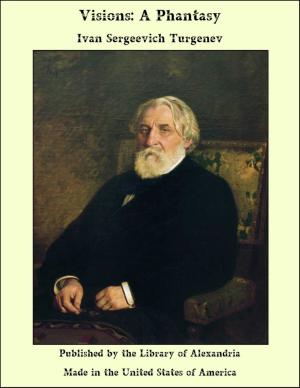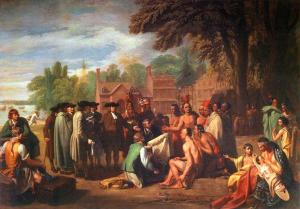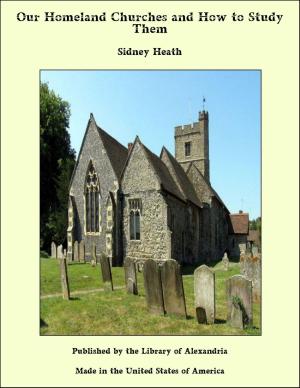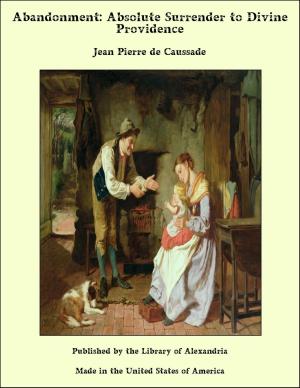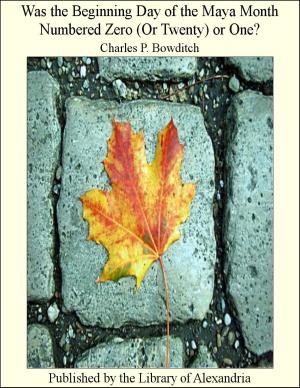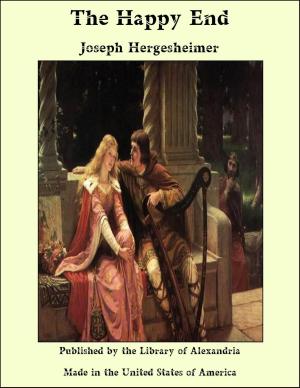The Cruise of the Thetis: A Tale of the Cuban Insurrection
Nonfiction, Religion & Spirituality, New Age, History, Fiction & Literature| Author: | Harry Collingwood | ISBN: | 9781465530004 |
| Publisher: | Library of Alexandria | Publication: | March 8, 2015 |
| Imprint: | Language: | English |
| Author: | Harry Collingwood |
| ISBN: | 9781465530004 |
| Publisher: | Library of Alexandria |
| Publication: | March 8, 2015 |
| Imprint: | |
| Language: | English |
A friend—and a mysterious stranger. “Hillo, Singleton, old chap, how are you?” exclaimed a young fellow of about eighteen years of age, as he laid his hand upon the shoulder of a lad about his own age, who, on a certain fine July day in the year of grace 1894, was standing gazing into the window of a shop in Piccadilly. The speaker was a somewhat slightly-built youth, rather tall and slim, by no means ill-looking, of sallow complexion and a cast of features that betrayed his foreign origin, although his English was faultless. The young man whom he had addressed was, on the Other hand, a typical Englishman, tall, broad, with “athlete” written large all over him; fair of skin, with a thick crop of close-cut, ruddy-golden locks that curled crisply on his well-shaped head, and a pair of clear, grey-blue eyes that had a trick of seeming to look right into the very soul of anyone with whom their owner happened to engage in conversation. Just now, however, there was a somewhat languid look in those same eyes that, coupled with an extreme pallor of complexion and gauntness of frame, seemed to tell a tale of ill health. The singularly handsome face, however, lighted up with an expression of delighted surprise as its owner turned sharply round and answered heartily: “Why, Carlos, my dear old chap, this is indeed an unexpected pleasure! We were talking about you only last night—Letchmere, Woolaston, Poltimore, and I, all old Alleynians who had foregathered to dine at the Holborn. Where in the world have you sprung from?” “Plymouth last, where I arrived yesterday, en route to London from Cuba,” was the answer. “And you are the second old Alleynian whom I have already met. Lancaster—you remember him, of course—came up in the same compartment with me all the way. He is an engineer now in the dockyard at Devonport, and was on his way to join his people, who are off to Switzerland, I think he said.” “Yes, of course I remember him,” was the answer, “but I have not seen him since we all left Dulwich together. And what are you doing over here, now—if it is not an indiscreet question to ask; and how long do you propose to stay?” The sallow-complexioned, foreign-looking youth glanced keenly about him before replying, looked at his watch, and then remarked: “Close upon half-past one—lunch-time; and this London air of yours has given me a most voracious appetite. Suppose we go in somewhere and get some lunch, to start with; afterwards we can take a stroll in the Park, and have a yarn together—that is to say, if you are not Otherwise engaged.” “Right you are, my boy; that will suit me admirably, for I have no Other engagement, and, truth to tell, was feeling somewhat at a loss as to how to dispose of myself for the next hour or two. Here you are, let us go into Prince’s,” answered Singleton. The two young men entered the restaurant, found a table, called a waiter, and ordered lunch; and while they are taking the meal the opportunity may be seized to make the reader somewhat better acquainted with them
A friend—and a mysterious stranger. “Hillo, Singleton, old chap, how are you?” exclaimed a young fellow of about eighteen years of age, as he laid his hand upon the shoulder of a lad about his own age, who, on a certain fine July day in the year of grace 1894, was standing gazing into the window of a shop in Piccadilly. The speaker was a somewhat slightly-built youth, rather tall and slim, by no means ill-looking, of sallow complexion and a cast of features that betrayed his foreign origin, although his English was faultless. The young man whom he had addressed was, on the Other hand, a typical Englishman, tall, broad, with “athlete” written large all over him; fair of skin, with a thick crop of close-cut, ruddy-golden locks that curled crisply on his well-shaped head, and a pair of clear, grey-blue eyes that had a trick of seeming to look right into the very soul of anyone with whom their owner happened to engage in conversation. Just now, however, there was a somewhat languid look in those same eyes that, coupled with an extreme pallor of complexion and gauntness of frame, seemed to tell a tale of ill health. The singularly handsome face, however, lighted up with an expression of delighted surprise as its owner turned sharply round and answered heartily: “Why, Carlos, my dear old chap, this is indeed an unexpected pleasure! We were talking about you only last night—Letchmere, Woolaston, Poltimore, and I, all old Alleynians who had foregathered to dine at the Holborn. Where in the world have you sprung from?” “Plymouth last, where I arrived yesterday, en route to London from Cuba,” was the answer. “And you are the second old Alleynian whom I have already met. Lancaster—you remember him, of course—came up in the same compartment with me all the way. He is an engineer now in the dockyard at Devonport, and was on his way to join his people, who are off to Switzerland, I think he said.” “Yes, of course I remember him,” was the answer, “but I have not seen him since we all left Dulwich together. And what are you doing over here, now—if it is not an indiscreet question to ask; and how long do you propose to stay?” The sallow-complexioned, foreign-looking youth glanced keenly about him before replying, looked at his watch, and then remarked: “Close upon half-past one—lunch-time; and this London air of yours has given me a most voracious appetite. Suppose we go in somewhere and get some lunch, to start with; afterwards we can take a stroll in the Park, and have a yarn together—that is to say, if you are not Otherwise engaged.” “Right you are, my boy; that will suit me admirably, for I have no Other engagement, and, truth to tell, was feeling somewhat at a loss as to how to dispose of myself for the next hour or two. Here you are, let us go into Prince’s,” answered Singleton. The two young men entered the restaurant, found a table, called a waiter, and ordered lunch; and while they are taking the meal the opportunity may be seized to make the reader somewhat better acquainted with them


